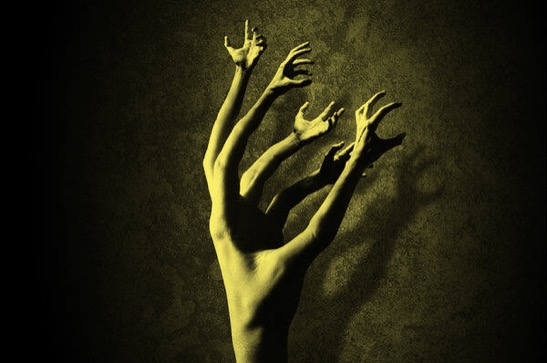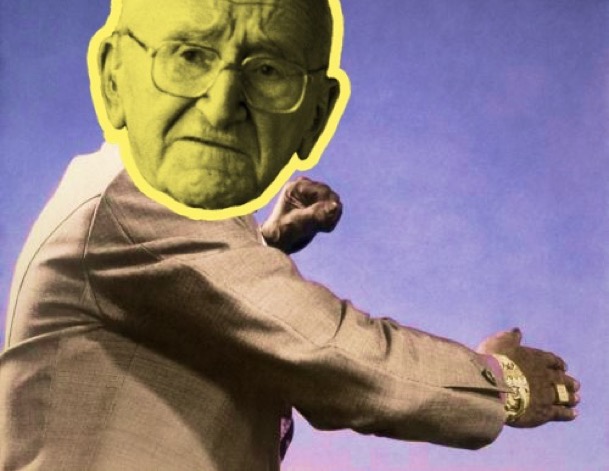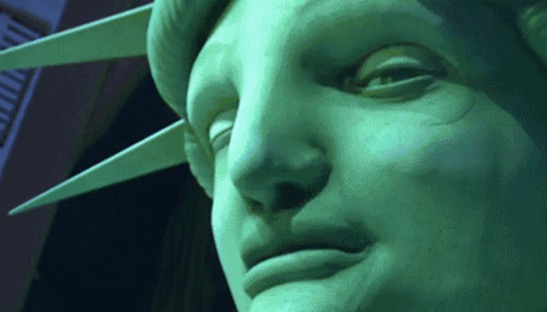Disillusioned liberalism can pull us from the hellbroth of clashing absolutists.
This Morality Isn’t Going to Consensus Itself

No invisible hand guides the hearts of the people.
It seems to me that Adrian Vermeule threw too many punches in “Liberalism and the Invisible Hand,” and landed a hit with only one of them. I would agree with Vermeule that moral consensus is wrongly assumed by many of today’s liberals to be the product of spontaneous order. Rather, the moral consensus of any country—on which all public policy ultimately depends for its justification—can only be the product of a conscious intellectual assent by that country’s citizens and politicians. Without such common agreement, liberal democracy is impossible and breaks down into factional tribalism.
This same point came up in the recent debate between David French and Sohrab Ahmari. French’s premise throughout the debate had been that liberal democracy should be guided by absolutely no moral principles, claiming that America’s success as a country was based on that sort of liberal neutrality. The former point is an error of reasoning, the latter is factual error. French depends on the sort of “invisible hand” reasoning that Vermeule rightly critiques in thinking that when a pluralist system of law is adopted everything will always turn out OK. In my opinion, this debate between French and Ahmari is still not over, because Ahmari has not fully plumbed the depths of what’s wrong with David Frenchism. By figuring that out, we might also discover some of what’s wrong with conservativism.
Older and wiser commentators on the successes and failures of American democracy knew better. As Charles Kesler pointed out during the Notre Dame edition of the Ahmari-French debate, Alexis de Tocqueville claimed in Democracy in America that Americans’ agreement on moral questions is what allowed for their civil diversity of religions. In Tocqueville’s words: “There is an innumerable multitude of sects in the United States. All differ in the worship one must render to the Creator, but all agree on the duties of men toward one another. Each sect therefore adores God in its manner, but all sects preach the same morality in the name of God.”
The decent coexistence of many religions is a major achievement of American democracy, but it is not attributable to liberal neutrality. It is attributable to conscious agreement on the natural law principles of morality by most citizens at that time.
A related point that is often overlooked about James Madison’s Federalist 10 is that although it is good for democracy to have a multiplicity of factions, they must be brought together again somehow in order for government to be possible. What brings America back together time and again throughout its history is common agreement based on the morality of natural law, to which Sohrab Ahmari alluded. This is the centripetal force of our political system, a necessary counterpart to the centrifugal force of having an extended republic. The various factions of America must agree enough about the goals of public policy, rooted in a conception of morality, to elect representatives who will make laws to achieve those goals. The “big tent” parties and politicians need some sort of moral fabric to connect the partisans tugging at the corners; the absence of morality won’t do.
Liberalism isn’t Magic
Even the philosopher prince of political liberals, John Rawls, acknowledged that liberal democracy is impossible if a broad moral consensus is not already present. As he writes in one of his last books, Justice as Fairness: A Restatement (2001), the most that political philosophy can do when “reasonable” pluralism is not present is to clarify the cleavages. Rawls notes: “We suppose, then, that one task of political philosophy—its practical goal, let’s say—is to focus on deeply disputed questions and to see whether despite appearances, some underlying basis of philosophical and moral agreement can be uncovered. Or if such a basis of agreement cannot be found, perhaps the divergence of philosophical and moral opinion at the root of divisive differences can at least be narrowed so that social cooperation on a footing of mutual respect among citizens can still be maintained.”
The liberal Catholic theologian Fr. John Courtney Murray, S.J., argued much the same thing about the problem of pluralism years before Rawls. Murray acknowledged the proper role of natural law as the source of consensus—three paragraphs from his We Hold These Truths (1960) seem especially relevant for our current debate:
- Granted that the unity of the commonwealth can be achieved in the absence of a consensus with regard to the theological truths that govern the total life and destiny of man, it does not follow that this necessary civic unity can endure in the absence of a consensus more narrow in its scope, operative on the level of political life, with regard to the rational truths and moral precepts that govern the structure of the constitutional state, specify the substance of the common weal, and determine the ends of public policy.
- My proposition is that only the theory of natural law is able to give an account of the public moral experience that is the public consensus.
- An increasing preoccupation with the problematic aspects of pluralism is indeed one of the most interesting phenomena of the present time, which distinguishes it from the heyday of classical liberalism, when man’s faith in the assumptions, spoken and unspoken, of an extreme individualism was still unshaken. For instance, it used to be assumed, as a cardinal merit of a pluralist society, that the truth would always be assured of conquest if only it were subjected to the unbridled competition of the market place of ideas. But it is now no longer possible to cherish this naivete.
If Rawls and Murray don’t believe in the spontaneous formation of a moral consensus, why does a self-described “conservative” like David French adhere to it? No amount of political-philosophical explanation or “invisible hand” necessity will draw our factions back together on their own. Only renewed agreement and dedication to natural law is the solution that has historically brought our country back together when it has been most divided. Fortunately for the United States, enlightened figures in the tradition of Abraham Lincoln and Frederick Douglass have helped to articulate and educate the public about what the moral consensus of America ought to be. The problem today is, many Americans have forgotten that education—and even why the education is necessary.
The American Mind presents a range of perspectives. Views are writers’ own and do not necessarily represent those of The Claremont Institute.
The American Mind is a publication of the Claremont Institute, a non-profit 501(c)(3) organization, dedicated to restoring the principles of the American Founding to their rightful, preeminent authority in our national life. Interested in supporting our work? Gifts to the Claremont Institute are tax-deductible.
Life under liberalism is servile, though there is no slavery.
Vermeule's Adam Smith is a straw man.
A different leap of faith could be far more dangerous.
Is liberalism still entitled to give itself a hand?





